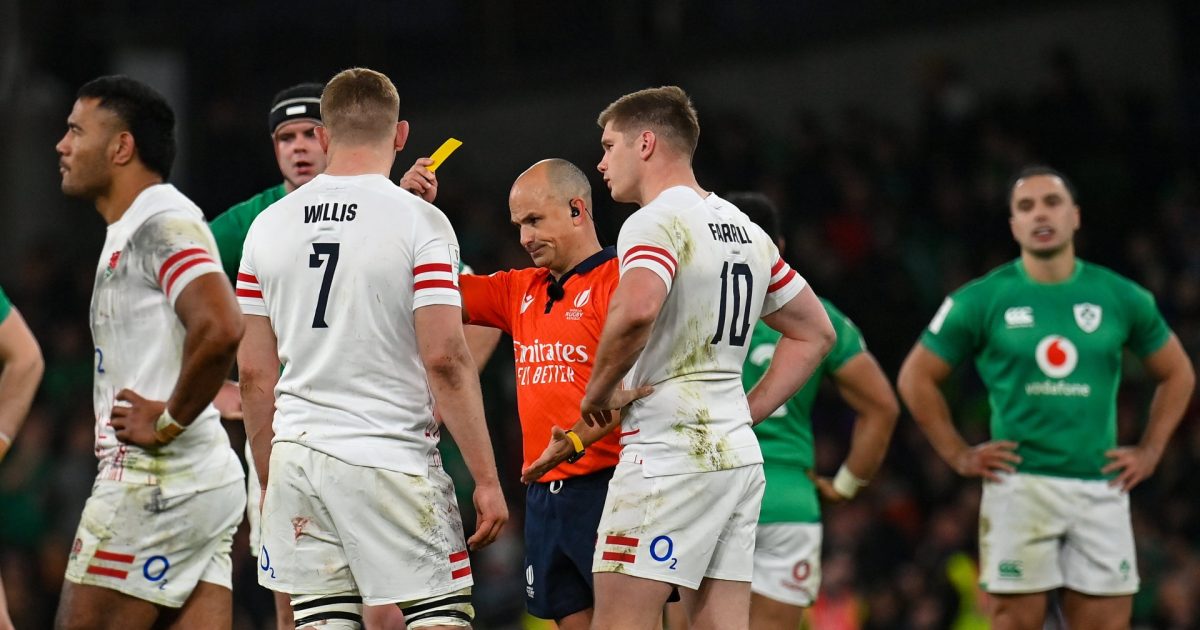Nigel Owens: Why Willis was carded and Fickou wasn't for tip tackle

Nigel Owens has assessed why England’s Jack Willis was yellow-carded in Dublin for an incident that was similar to the un-carded intervention by Gael Fickou of France in Paris during round five of the Guinness Six Nations. Back-rower Willis was sin-binned in the closing stages of the English loss to Ireland for his tip tackle on Ross Byrne. However, a penalty was only awarded against French midfielder Fickou when he upended Wales’ Alun Wyn Jones in an earlier match last Saturday.
What gives? Test centurion referee Owens claimed the incidents were slightly different which was why they had different refereeing outcomes, Jaco Pepyer brandishing the yellow card at the Aviva Stadium and Nic Berry keeping his cards in his pocket at Stade de France.
Speaking on the latest episode of Whistle Watch, Owens explained: “Jack Willis yellow card, is it a deserved one? There is pick and drive, there is a turn but there is no high degree of danger and head contact into the ground and therefore you come from the red card to the yellow. So, yellow card? The correct decision.
“Fickou and Alun Wyn Jones, some will be asking why isn’t this a yellow card then? Well, it is slightly different. We have a lift, Alun Wyn Jones is quite low to the ground, he comes down pretty safely on his back, very low degree of danger.
“With Fickou, it is more of the dynamic of the tackle rather than tipping and turning and driving. So, here in this instance, a very low degree of danger and sanction is a penalty only. The correct decision as well.”
Having spoken at length at the top of his programme about last weekend’s main talking point, the red-carding of England’s Freddie Steward, Owens rounded off the episode by running the rule over two other round-five incidents a knock-on by France’s Uini Atonio and a try-saving intervention by England’s Maro Itoje.
“Atonio knock-on, was it deliberate? Is he trying to regather that ball and is he in a realistic position to regather that ball? We don’t have a slap, we don’t have a deliberate knock in that sense, so we go onto the next stage. What was he trying to do? Was he trying to regather that ball and if so, did he have a realistic chance of regathering it?
“When you look at that I would say he probably does so to me that is not an act of a deliberate knock-on, and it is enough of an opportunity for him to regather that ball. Therefore, a knock-on only is the correct decision.
“Itoje, quick tap, was he offside? Itoje is on the try line so if the quick tap is five metres out you don’t have to be 10 metres back because the try line is closer than 10 metres so he is back on the try line, he is legal.
“Once he comes up to make the tackle, Farell, who is now retreating, is then put onside once Itoje, who is onside, passes him. So, the tackle and the turnover is completely legal, they are onside. Play on, goalline dropout.”






































Jaco Pepyer was the main difference